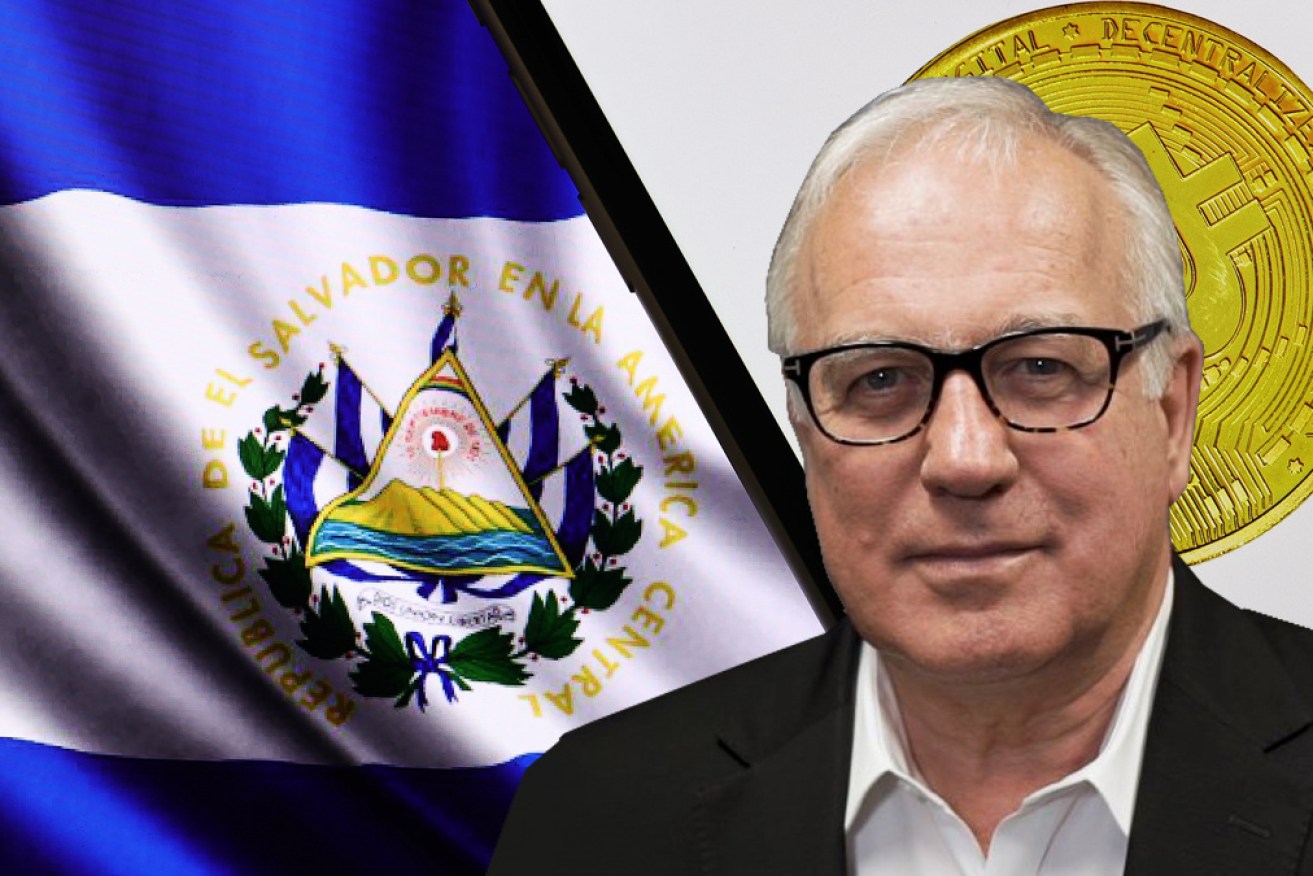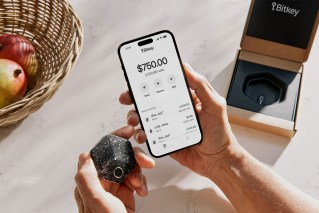Alan Kohler: El Salvador and DeFi mean the crypto game is afoot


El Salvador's Bitcoin move could go either way, but the crypto game is definitely on, Alan Kohler writes. Photo: Getty/TND
The decision by El Salvador to accept Bitcoin as legal tender is a big moment.
It could prove that the largest cryptocurrency is a viable alternative to the money created by central banks, which would be huge.
Or it could prove the opposite by making a bigger mess of El Salvador’s economy than it already is, and that would probably be the end of all the Bitcoin fun.
The new law was announced by the country’s 39-year-old president, Nayib Bukele, in a recorded video during a speech by Jack Mallers, the founder of a crypto payments business called Strike, at a Miami Bitcoin conference last week.
Mallers lived in El Salvador for three months and helped write the two-page bill.
He cried a few times during his speech, as he stalked endlessly across the stage in his baseball cap and cheek mic, swearing frequently, first as he described the terrible living conditions in El Salvador and then because he was overcome at the magnitude of what President Bukele had just announced.
The main reason for El Salvador making Bitcoin legal tender, apart from wanting to be the first country to do something really cool, is because $US6 billion per year – 23 per cent of its GDP – is sent back to Salvadoran families by relatives living in the United States, and according to Mallers, the bank transfer fees take up to 50 per cent of it.
Bitcoin transfers can be done for free.
A lot of people are saying it’s a stupid idea because the price of Bitcoin jumps around so much.
Will a debt be settled at the price when the loan was made or when it was repaid? How can anyone set a price for something when the currency’s value can shift 10 per cent in a day?
But this column is not about whether it’s a good idea for El Salvador or any country to make Bitcoin legal tender. I simply have no idea.
It might work, and if it does it will be a very big deal.
If it doesn’t, well, El Salvador can just go back to using US dollars and President Bukele, like all politicians who mess up, can try to pretend it never happened and then get voted out.
No, this column is about the fact that Bitcoin is actually an aberration in the world of crypto: It’s about the only one that could be legal tender because it doesn’t do anything else.
Like a $10 note, it’s useless for anything other than transferring value from one person to another.
And the reason it’s been rising in price is because unlike actual money, there’s a limited supply of them (smoke has been rising from the central bank money printing machines in recent years, as they run flat out).
Most of the other cryptocurrencies, in contrast, are not currencies at all, because they are part of something bigger, and are useful in some way.
Most importantly, more than 100 of them are involved in decentralised finance, or DeFi.
These are financial software protocols mostly built on the Ethereum blockchain that do what banks do but for a fraction of the price.
They are going to be immensely disruptive to the banking and financial services industries.
Ethereum is the second biggest cryptocurrency after Bitcoin, but because its architecture is open source, other developers can build a wide range of other applications on top of it easily and cheaply.
For example, Compound is a money market algorithm that allows people to borrow and lend money to each other, with interest accruing automatically, and with almost zero fees.
There are a few other lending cryptos, like Aave, Maker and Liquity, while SushiSwap, Uniswap and Curve Finance are financial exchanges.
Synthetix trades derivatives like options and futures, and a few other ones are payment systems.
Filecoin is a protocol that aggregates data storage from thousands of computers around the world and allows it be traded.
THORchain allows people to easily swap assets with each other without needing order books for liquidity.
TRON is a blockchain that claims to be faster than everyone else – 2000 transactions per second instead of Bitcoin’s six and Ethereum’s 25.
And so on.
There are thousands of them, all charging little or no fees.
Some of them, like TRON, are companies, but most seem to be disembodied software creations that represent the next phase of the technology revolution that began with the internet in the 1980s.
The whole thing looks like a kind of cult, populated by well-meaning devotees like Jack Mallers, who talks passionately about the global conspiracy of central banks oppressing the poor and downtrodden.
But it’s nothing like QAnon, for example, the conspiracy cult that’s been in the news this week.
The crypto cult is much more like the beginnings of the internet itself, when a group of starry-eyed devotees saw the potential of connecting everyone on the planet, and then everyone got excited and caused a stockmarket bubble in the late ’90s that burst and made everyone unexcited again, before they got permanently excited – and rich – 10 years later.
History will repeat: These blockchain operations might bubble and burst, but they are going to turn commerce upside down again, just as the internet did.
I find the hardest thing to get my head around are the tokens, the things we know as cryptocurrencies, that go up and down in price, mostly up.
They are not stocks, which confer fractional ownership of a business, nor are they bonds, which represent a promise to repay a loan, with interest.
And with the exception now of Bitcoin in El Salvador, they are not currencies because they can’t be exchanged for goods and services, except within the ‘ecosystem’ of the particular protocol.
So what are these things that a lot of people are getting rich from?
Well, some tokens confer voting rights over the governance of the operation and some allow the holder to use the service, whatever it is.
Your correspondent has his nose pressed against the window pane of this world, but I reckon they are really just the entry ticket into the game.
And the game, as Sherlock Holmes would say, is afoot.
Alan Kohler writes twice a week for The New Daily. He is also editor in chief of Eureka Report and finance presenter on ABC news








